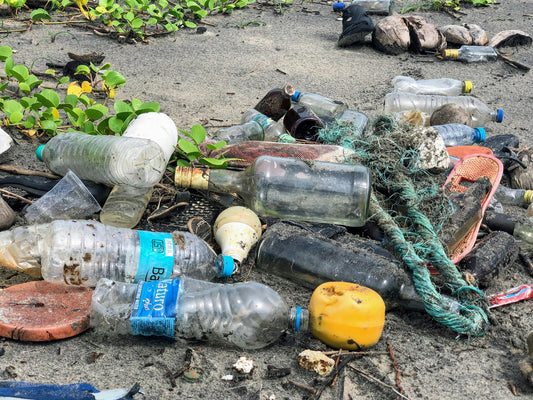Share
AstraZeneca Threatens to Cut UK Jobs Over Biodiversity Levy:
AstraZeneca, a British-Swedish biotechnology firm, has indicated that it might reduce its workforce in the UK if the government enforces a global push to make companies share profits derived from nature's genetic codes. This statement came during a roundtable meeting hosted by the Department for Environment, Food and Rural Affairs (Defra) last week, where the pharmaceutical industry expressed strong opposition to proposed profit-sharing regulations.
Key Points:
- AstraZeneca's Statement::
The company might cut jobs in the UK if a global tax on pharmaceuticals derived from digital representations of biodiversity is implemented.
- Profit-Sharing Proposals::
Global leaders are discussing a 1% global tax on profits from goods generated from digital sequence information (DSI), which could result in significant costs for companies like AstraZeneca.
- Industry Opposition::
The pharmaceutical sector is lobbying against the proposed regulations, arguing that a compulsory tax would undermine competitiveness and deter the use of essential data.
- DSI Importance::
DSI is crucial for scientific breakthroughs, including treatments for diseases like Alzheimer's and cancer. It is digitized and shared online, making it accessible to researchers and companies.
- Bio-Piracy Concerns::
Many countries in less affluent regions oppose the use of their native biodiversity by companies and researchers without compensation, labeling it as 'bio-piracy.'
- UK Government Considerations::
The UK government is considering mandatory national measures, which could include enforcing a DSI tax, despite industry concerns about its impact on competitiveness and research efforts. Additional Context::
- AstraZeneca's Investment::
Despite the potential job cuts, AstraZeneca has recently declared a £650 million investment in its UK operations, including £450 million dedicated to its vaccine research and manufacturing facility in Liverpool.
- International Discussions::
The DSI discussions at the UN biodiversity summit (Cop16) are expected to conclude by the end of next week, with world leaders working to negotiate an agreement regarding the sharing of resources derived from DSI.
AstraZeneca, a British-Swedish biotechnology firm, has indicated that it might reduce its workforce in the UK if the government enforces a global push to make companies share profits derived from nature's genetic codes. This statement came during a roundtable meeting hosted by the Department for Environment, Food and Rural Affairs (Defra) last week, where the pharmaceutical industry expressed strong opposition to proposed profit-sharing regulations.
Key Points:
- AstraZeneca's Statement::
The company might cut jobs in the UK if a global tax on pharmaceuticals derived from digital representations of biodiversity is implemented.
- Profit-Sharing Proposals::
Global leaders are discussing a 1% global tax on profits from goods generated from digital sequence information (DSI), which could result in significant costs for companies like AstraZeneca.
- Industry Opposition::
The pharmaceutical sector is lobbying against the proposed regulations, arguing that a compulsory tax would undermine competitiveness and deter the use of essential data.
- DSI Importance::
DSI is crucial for scientific breakthroughs, including treatments for diseases like Alzheimer's and cancer. It is digitized and shared online, making it accessible to researchers and companies.
- Bio-Piracy Concerns::
Many countries in less affluent regions oppose the use of their native biodiversity by companies and researchers without compensation, labeling it as 'bio-piracy.'
- UK Government Considerations::
The UK government is considering mandatory national measures, which could include enforcing a DSI tax, despite industry concerns about its impact on competitiveness and research efforts. Additional Context::
- AstraZeneca's Investment::
Despite the potential job cuts, AstraZeneca has recently declared a £650 million investment in its UK operations, including £450 million dedicated to its vaccine research and manufacturing facility in Liverpool.
- International Discussions::
The DSI discussions at the UN biodiversity summit (Cop16) are expected to conclude by the end of next week, with world leaders working to negotiate an agreement regarding the sharing of resources derived from DSI.
We hope you enjoyed this article. Please feel free to leave a comment below if you want to engage in the discussion.
If you want to read more like this, make sure to check out our Blog and follow us on Instagram. If you are interested in truly sustainable products, check out our Shop.
Check out the original source here.








